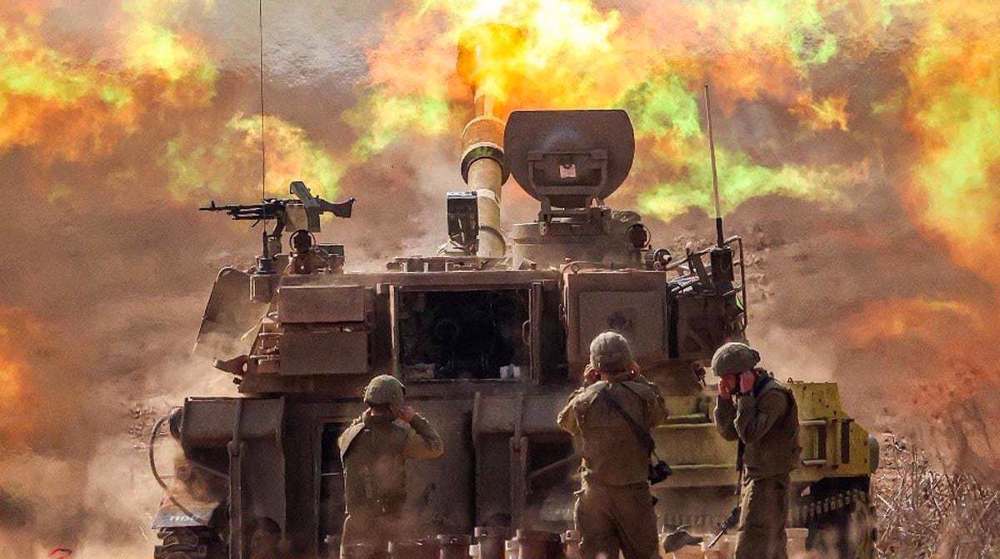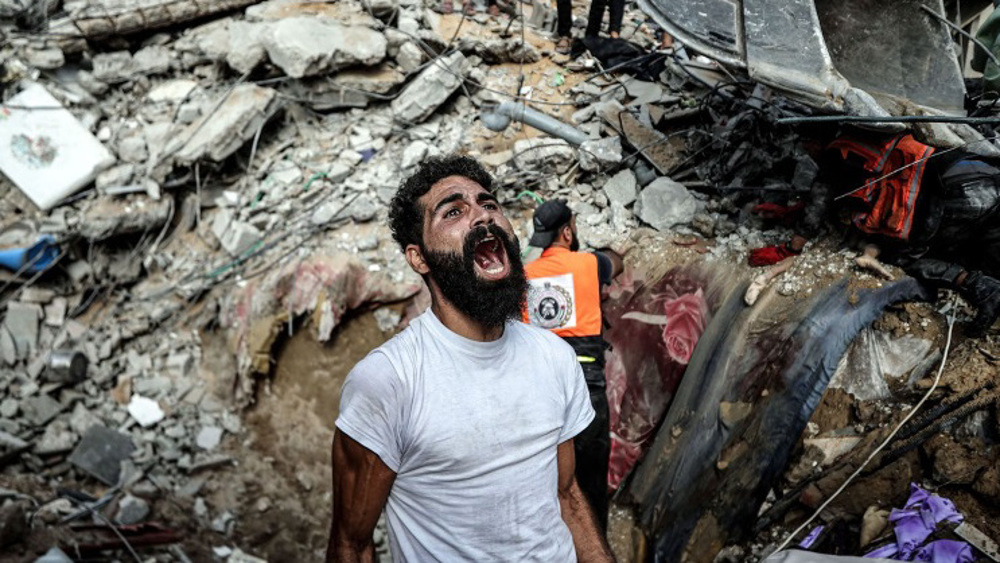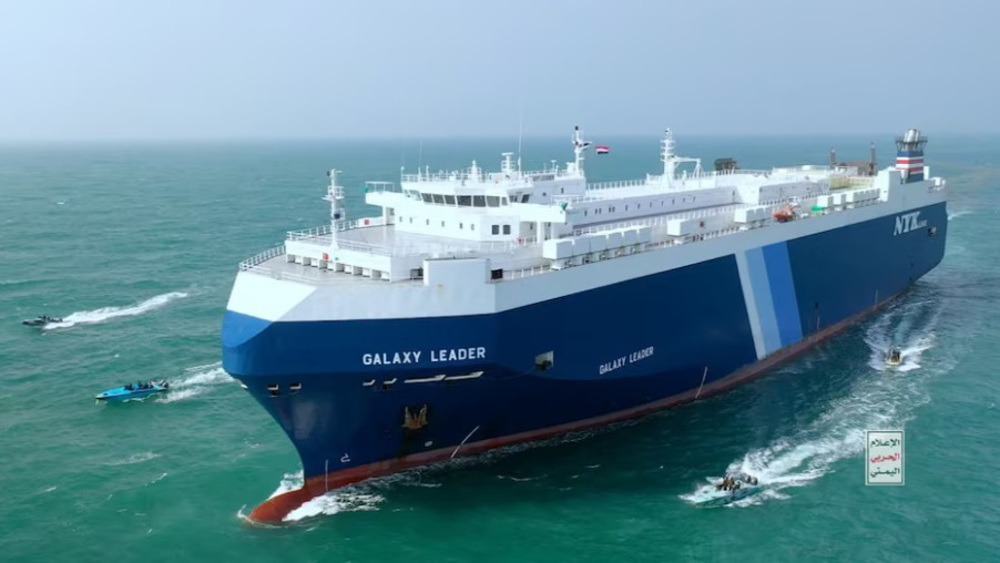Israel plans new invasion after Biden outlines truce roadmap
Israeli forces pound Rafah in southern Gaza with tanks and artillery just after US President Joe Biden says the regime is offering a new roadmap towards a full ceasefire.
Extremist prime minister Benjamin Netanyahu insisted Saturday after Biden's announcement that Israel will still pursue the war until it has reached all its aims.
"Israel's conditions for ending the war have not changed," he said, citing the "destruction" of Hamas's military and governing capabilities, the release of all Israeli captives and "ensuring that Gaza no longer poses a threat to Israel".
A permanent ceasefire without those conditions being met was "a non-starter", he said.
Netanyahu's defiant tone came even as the US president outlined what he called Israel's three-stage offer for a possible end to the invasion.
The roadmap, Biden said, would begin with a six-week phase that would see Israeli forces withdraw from all populated areas of Gaza.
It would also see the release of a number of captives, including women, the elderly, the wounded, in exchange for the release of hundreds of Palestinians held in Israeli prisons, he added.
Israel and the Palestinians would then negotiate during those six weeks for a lasting ceasefire -- but the truce would continue while the talks remained underway, Biden said.
Reports said US Secretary of State Antony Blinken had called his counterparts from Jordan, Saudi Arabia and Turkey on Friday to press the deal.
UN chief Antonio Guterres "strongly hopes" the latest development "will lead to an agreement by the parties for lasting peace", his spokesman Stephane Dujarric said.
Germany, the EU and Saudi Arabia also welcomed the plan, while Hamas said it "views positively" the plan laid out by Biden.
But Netanyahu dismissed Biden's presentation of what was on the table, insisting that the transition from one stage to the next in the plan was "conditional" and crafted to allow Israel to maintain its war aims.
"The prime minister authorized the negotiating team to present an outline for achieving (the return of captives), while insisting that the war will not end until all of its goals are achieved," Netanyahu's office said.
Early last month, Israel sent tanks and troops into Rafah, ignoring concerns over the safety of displaced Palestinian civilians sheltering in the city on the Egyptian border.
On Saturday, residents reported tank fire in the Tal al-Sultan neighborhood in west Rafah, while witnesses in the east and center of Rafah described intense artillery shelling.
"From the early hours of the night until this morning, the aerial and artillery bombardment has not stopped for a single moment," AFP quoted a resident from Rafah telling the news agency.
"There are a number of occupation snipers in high-rise buildings overseeing all areas of Tal al-Sultan... making the situation very dangerous," the resident added.
The news agency also reported shelling and gunfire from Israeli troops in Gaza City, in the north of the Palestinian territory.
Before the Rafah invasion began, the United Nations said up to 1.4 million people were sheltering in the city.
Since then, one million have fled the area, the UN agency for Palestinian refugees, UNRWA, has said.
The Israeli invasion of the Rafah crossing has further slowed sporadic deliveries of aid for Gaza's 2.4 million people and effectively shuttered the territory's main exit point.
The World Food Program says daily life has become "apocalyptic" in parts of southern Gaza since Israel began its assault on Rafah.
Beit Hanun, next in line for Israeli invasion
In northern Gaza, witnesses said Saturday that after carrying out a three-week invasion of the town of Jabalia and its neighboring refugee camp, Israeli troops had ordered residents of nearby Beit Hanun to leave ahead of an imminent onslaught.
The Israeli military said troops "completed their mission in eastern Jabalia and began preparation for continued operations in the Gaza Strip".
Jabalia shopkeeper Belal al-Kahlot said there was nothing left of his store after the Israeli operation. "Everything is ashes."
Israel's invasion of the Gaza Strip since early October has killed at least 36,379 people in Gaza, mostly civilians, according to the territory's health ministry.
The Israeli military announced the deaths of two soldiers in Gaza, taking to 294 the number of Israeli troops killed since the start of ground invasion in late October. Palestinian sources say the Israel regime maintains a systematic secrecy over its losses and that the real death toll is much higher.
ICC issues arrest warrants for Israel's Benjamin Netanyahu, Yoav Gallant
Israeli strikes kill 88 Palestinians in northern Gaza
American voters plainly rejected complicity in Gaza genocide: Iran FM spox
ICC should issue more arrest warrants for Israeli authorities over Gaza genocide: UN expert
Israel using AI weapons co-produced by India in Gaza genocide: Report
Israel issues new evacuation orders, shortly launches strikes on southern Lebanon
VIDEO | Press TV's news headlines
From Iraq to Gaza: The great disconnect between British people and rulers










 This makes it easy to access the Press TV website
This makes it easy to access the Press TV website